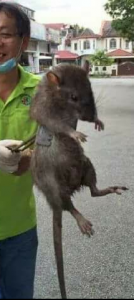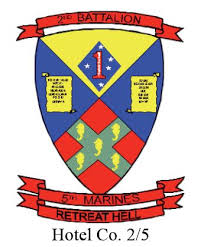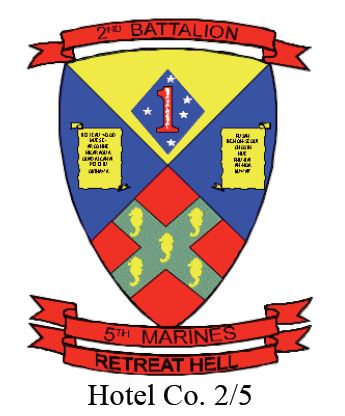They never trained us in boot camp or during infantry training about how to survive from many of the elements of Vietnam or its challenging environment. We were trained very well on how to use our weapons to kill and to protect ourselves from the enemy, but we never had any training for all the other ways you can catch a disease, get wounded, or even die in Vietnam.
 Whether it was from booby traps, malaria from insects, hepatitis, homicides, friendly fire or suicide, a buddy shooting at you while he was stoned on pot, accidents riding in vehicles, or helicopters, or animal bits from ants, scorpions, venomous snakes, monkeys or rats; any of these can seriously mess you up or kill you. Yes, even rats!
Whether it was from booby traps, malaria from insects, hepatitis, homicides, friendly fire or suicide, a buddy shooting at you while he was stoned on pot, accidents riding in vehicles, or helicopters, or animal bits from ants, scorpions, venomous snakes, monkeys or rats; any of these can seriously mess you up or kill you. Yes, even rats!
The 1st and 3rd Marine Divisions had to deal with rats in Nam, yes very big rats. I’m talking about man-eating rats. There were rats everywhere up near the DMZ. From Khe Sanh to Hue City, from Charlie Ridge to Ia Drang Valley there were thousands of rats running around everywhere. They ate from the city’s garbage areas, and from the store supplies full of rice and potatoes. They even ate the tossed-out food and garbage from the NVA soldiers, the ARVNs, and us Americans.
When you weren’t in a firefight, ducking incoming mortars, or on night watch, you had the opportunity to catch some shut-eye. Keep in mind that most of the time; you are sleeping on the ground, in an old bunker, or in a freshly dug foxhole. It’s dark, with no lights, and pouring down rain during the monsoon season. It’s a hell hole but you survive. Once in a while, but very rarely, you might get to sleep in a cot in a tent behind a perimeter line.
In Khe Sanh, there was a Marine who didn’t cover up tightly when he went to sleep his first night in the Nam and got bitten in the face by one of these rats taking a huge chunk of flesh out of his cheek. He got medevac’d back to the States.
Rat bites and scratches can result in disease and rat-bite fever. Rat urine is responsible for the spread of leptospirosis, which can result in liver and kidney damage. It can also be contracted through handling or inhalation of scat (poop). Complications include renal and liver failures as well as cardiovascular problems that have resulted from rat bites. From the transmission of bubonic plague to typhus and hantavirus, rat infestations can prove harmful to human health. Rats also are a potential source of allergens. Their droppings, dander, and shed hair can cause people to sneeze and experience other allergic reactions. Yep, they never educated us about these possibilities as we were exposed to and lived among the rats.
You haven’t seen big rats until you’ve been face to face with these rats that roamed the areas we lived and fought in. The rats had fleas, ticks, and mites. The rats would hide during the day and run around at night looking for food to eat. We could stab them with our bayonets but not shoot them. Shooting them might have given away our night position. Besides, it would have been a waste of preciously needed ammo.
Oh, by the way, rats are a delicacy food item for Vietnamese meals. What was your experience dealing with rats in Vietnam? Did you eat one or see some this big? Please log in and leave a comment below this blog telling us about your experience with big rats.


2 Comments
Aimee
I have seen some rats before, but none that big! CREEPY!! Thanks for sharing the story. I enjoy reading about your memories.
sondermanjoe
When I left the field I was assigned the job of infection control for the Battalion area. Part of the job was rat control and trapping rats to check for disease carrying fleas. This was accomplished with a live trap, a big live trap. Rats were taken back to the BAS and the whole trap was dropped in a large barrel of water. When the rats drowned the fleas floated to the surface of the water and I could look at them with the microscope to see if they were the type that carried plague. I also had to survey the marines on shitter burning detail and walk the perimeter on patrol daily. Sometimes I carried a back pack mounted blower that distributed larvaecide to kill mosquitos. I don’t think it worked well as we were always getting bitten.
I also inspected the Mess Hall but claim no responsibility for the food.